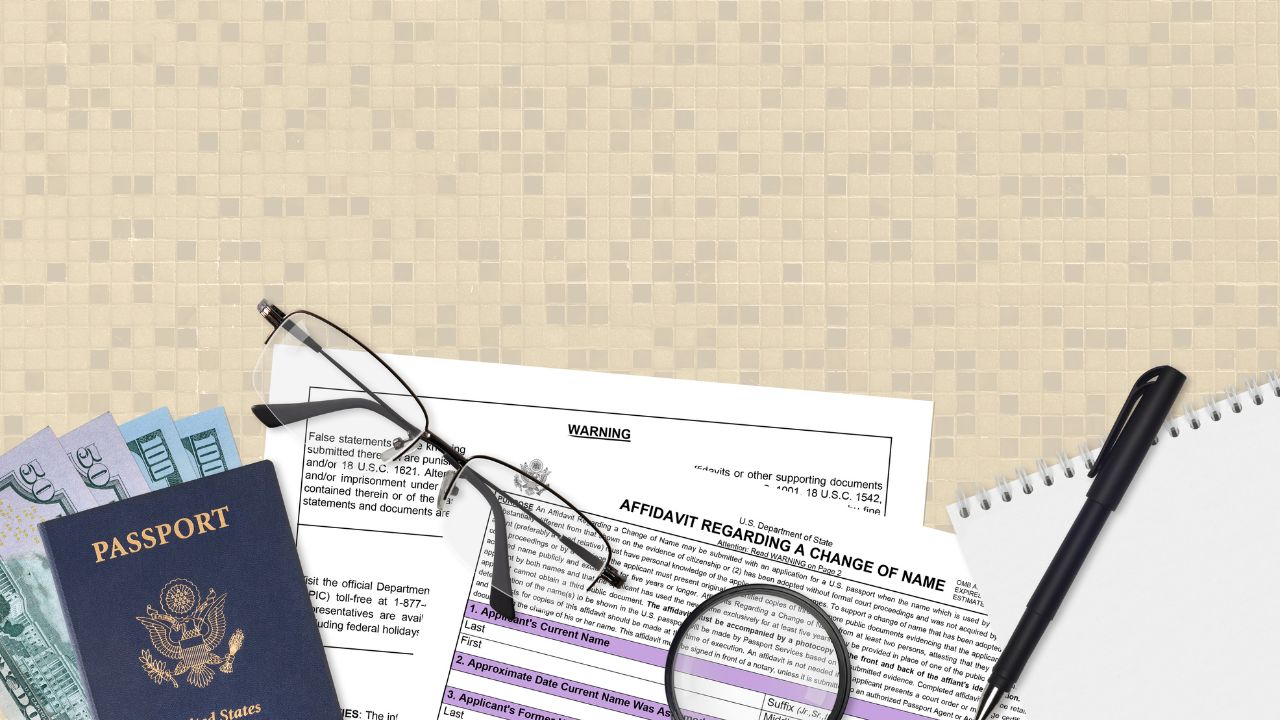For many individuals, legally changing a name is more than just paperwork; it’s an act of self-affirmation, personal safety, and dignity. Whether prompted by gender identity, cultural reasons, marriage, divorce, or survival from abuse, name changes are critical for aligning personal identity with legal recognition. Yet, across the United States, name change laws vary dramatically by state, often creating unnecessary and harmful barriers for people seeking to live authentically.
Illinois, historically one of the strictest states regarding name change laws, has recently become a notable example of reform efforts aimed at correcting these disparities. Understand the inconsistencies in name change laws, why reforms are necessary, and what legislative progress Illinois has made in recent years.
Table of Contents
Discrepancies in Name Change Laws
Name change laws differ widely between jurisdictions, causing inequities based on geography, race, gender identity, and past criminal history. Here are the most common inconsistencies:
1. Criminal Record Restrictions
Many states, including Illinois until recently, imposed harsh barriers for individuals with criminal records:
- 10-year waiting periods post-sentence.
- Lifetime bans for those with convictions for identity theft or individuals on certain offender registries.
These laws often excluded people from reclaiming their identity, even after completing their sentence, effectively extending punishment beyond incarceration. They also failed to recognize the rehabilitative purpose of the justice system.
2. Publication Requirements
A number of states require individuals to publish their intent to change their name in a newspaper:
- This exposes sensitive information publicly.
- It increases risk for survivors of domestic violence, stalking, or transgender individuals facing discrimination.
3. Residency Requirements
Lengthy state residency requirements (such as six months) create a barrier for:
- Recent arrivals.
- Migrants and displaced individuals.
- Survivors fleeing abusive environments.
4. Gender Identity and Bureaucratic Red Tape
Many jurisdictions historically required proof of surgery or a court order to change gender markers, even when the individual had already changed their name. This disproportionately impacted transgender and nonbinary individuals.
5. Judicial Discretion Without Clear Guidelines
The lack of consistent standards on judicial discretion often led to:
- Uneven application of the law.
- Discrimination or bias influencing rulings.
- A lack of transparency in outcomes.
Illinois: A History of Harsh Laws
Before recent reforms, Illinois was considered one of the toughest states for name changes due to:
- Lifetime bans for people convicted of identity theft or those on sex offender or arson registries.
- A 10-year ban after completing a felony sentence or parole.
- Mandatory publication in a local newspaper, even for at-risk individuals.
- Third-party witness signatures required on petitions.
- Disclosure requirements for judicial candidates who had changed their name within three years, unless due to marriage, divorce, gender transition, or adoption.
These rules particularly affected Black and Brown transgender individuals, formerly incarcerated people, and women navigating name changes after marriage or divorce.
Recent and Ongoing Reforms in Illinois
1. Public Act 103-0341 (Effective January 1, 2024)
This transformative law includes the following reforms:
- Eliminated the 10-year waiting period post-sentence for individuals with felony records.
- Lifted lifetime bans for those on offender registries under certain circumstances, especially for gender identity or trafficking-related reasons.
- Removed third-party witness requirements on name change petitions.
- Allowed judges to waive publication requirements if the petitioner attests to hardship or safety concerns.
- Created a standardized statewide form for name change petitions.
2. House Bill 2542 – Name Change Modernization Act
Signed into law in 2023, this bill:
- Further codified the end of discriminatory bans on those with criminal records.
- Empowered judges with discretion to approve petitions from people with past convictions, especially when the change is tied to safety or identity.
- Streamlined and clarified petition processes.
3. House Bill 5164 – Procedural Simplification
Awaiting the Governor’s signature as of mid-2025, this bill would:
- Eliminate newspaper publication requirements entirely.
- Reduce residency requirements from six to three months.
- Permit impoundment of court records when petitioners cite risk of harm, based solely on sworn affidavits, not additional proof.
4. House Bill 5507 – Supporting Transgender Individuals
Passed in 2025, this law:
- Enables Illinois residents to change birth certificates and identity documents issued outside of Illinois with a judicial order—without needing surgery.
- Reinforces Illinois’s reputation as a haven for transgender and nonbinary rights.
Why These Reforms Matter
| Issue Addressed | Reform Impact |
|---|---|
| Criminal record restrictions | Promotes rehabilitation and equality; restores civil rights post-incarceration. |
| Publication requirements | Enhances privacy and safety for at-risk groups. |
| Residency period | Broadens access to newly relocated or vulnerable populations. |
| Judicial discretion | Increases fairness and reduces arbitrary barriers. |
| Gender identity support | Validates trans and nonbinary identities; reduces gatekeeping in legal systems. |
Illinois as a Model for Other States
Illinois’s path from punitive to progressive name change laws reflects a broader shift happening in several states. The reforms in Illinois are the result of sustained advocacy by legal aid groups, LGBTQ+ organizations, formerly incarcerated individuals, and domestic violence survivors.
Organizations like the Transformative Justice Law Project, Chicago House, Howard Brown Health, and the ACLU of Illinois have played a critical role in pushing these reforms.
Name changes are not trivial, they are often a matter of safety, identity, and equality. For decades, laws in Illinois needlessly punished people for their pasts or made vulnerable groups risk exposure simply to live as themselves.
Thanks to recent reforms, Illinois is now at the forefront of equitable name change legislation. These changes not only uphold individual dignity but also serve as a blueprint for other states seeking to modernize their legal frameworks.
As the conversation continues, stakeholders must focus on ensuring access, spreading awareness, and refining processes to remove any remaining hurdles, because everyone deserves the right to be recognized for who they are.

